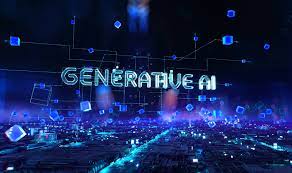By Manish Mohta
The modern education system has seen a massive change in the past decade than it did before. With the introduction of technology in the sector, studying is becoming less of a chore for students and more of a choice now. As there are multiple options and subdivisions present for students to find, one can easily pursue whatever they want to do in future. Education systems are becoming more adaptive. These adaptive learning systems are revolutionizing the way students learn.
Adaptive learning systems utilizes advanced artificial intelligence, which allows the delivery of personalized instruction that meets the unique needs of each learner. This system defeats the previous traditional learning method, which often took a one-size-fits-all approach. Adaptive learning systems make studying efficient for students of all kinds, those with different paces and those with different learning styles.
Through AI-generated models, universities can track each student’s progress and adjust the required changes accordingly. Thus, personalizing or customizing the educational content as per a student’s wish becomes even easier. Adaptive learning systems also lead to better academic outcomes, as well as a more positive learning experience for students. The availability of learning outcomes and category-wise analytics (for courses, subjects, locations, and so on) would also assist educators and educational institutions in making informed decisions. As per the insights from students’ performances, institutions would be able to introduce resources and solutions to keep the academics to the best.
Revolution Adaptive Learning Systems Bring in Education Sector
Adaptive learning systems bring forth a big revolution to provide a better solution in the educational system. Here are some ways how it is a much better option than the traditional system:
- Personalized instruction: Adaptive learning systems can deliver personalized instruction allowing every learner to set their pace accordingly. This can help students to learn more effectively and efficiently.
- Engaging content: Adaptive learning systems provide engaging content using different media forms like text, image, video, etc., that keep students motivated and engaged. This can lead to better academic outcomes.
- Variety of options: This system brings lots of opportunities and options for students to gain knowledge for their respective courses. It also helps the universities to provide the right education to a large number of students from a distance as well as in-class presentations.
Further elaborating on the topic, Managing Director of Learning Spiral Pvt. Ltd., Manish Mohta, says, “Adaptive learning is still a relatively new technology, but it has the potential to revolutionize the way one learns. As AI technology continues to develop, adaptive learning systems will become even more sophisticated and effective. This will make it possible for students to receive personalized instruction that is tailored to their individual needs.”
“In the future, adaptive learning systems are likely to become the norm in education. That is why Learning Spiral is bringing out innovative services and products to help universities create a suitable environment for students in this modern era. Our systems are used by schools and universities around the world to help students learn more effectively. We are committed to using AI to personalize learning and improve academic outcomes for all students.”

(The author is Manish Mohta, Managing Director of Learning Spiral, and the views expressed in this article are his own)






